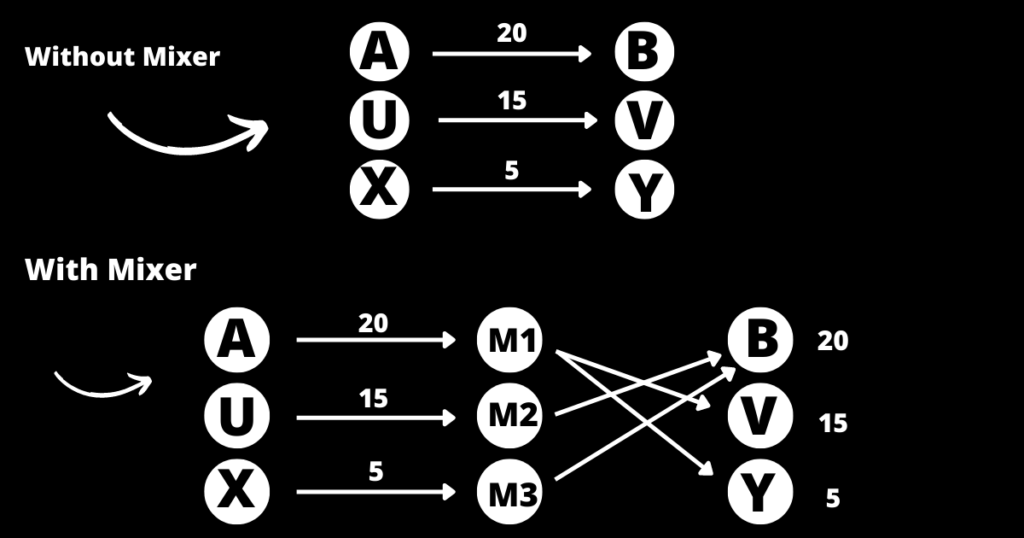Is Bitcoin Traceable? Can you trace a Bitcoin transaction? Cryptocurrencies are often thought of as being used solely by criminals on dark net markets due to their ability to facilitate anonymous transactions hidden away from any bank or government. While blockchain-powered assets do have their perks in the domain of privacy we can’t say that they’re fully anonymous.
Is Bitcoin Traceable? Can you trace a Bitcoin transaction? Blockchain technology makes it possible to participate in a transparent payment system where anyone can track another person’s financial activity. As a result transactions on networks like bitcoin are easily traceable but to what exact degree are they anonymous? You’ll often hear bitcoin being referred to as a pseudo-anonymous network. This means that it’s neither fully transparent nor fully anonymous. While we can track financial activity since blockchain transactions are public. We don’t know who issues these transactions. Is it your work colleague a minor from china or a hedge fund manager who made his first bitcoin investment?
We have everything needed to analyze and track transactions. Blockchain explorers can show you every piece of activity starting from a wallet’s creation up to its last transaction. Yet we can’t identify a wallet’s owner. As we can see bitcoin transactions may be traceable but there are enough layers of privacy to protect your identity.
Is it possible to hide your transaction on blockchain?
Is Bitcoin Traceable? Yes, it’s traceable but it’s also possible to hide your transactions on the blockchain. The easiest way to ensure your privacy is by keeping your traceability as low as possible. The less information someone can pick up from your on-chain activity the better the chance that you’ll forever remain anonymous. Since the beginning of bitcoin, users of so-called mixing services have used them to protect their anonymity by severing ties with their primary wallets.
Bitcoin Mixer
Is Bitcoin Traceable? Can you trace a Bitcoin transaction? Yes, it is possible but you can also hide or manipulate it by using a bitcoin mixer. Essentially bitcoin mixers are online platforms that mix coins received from multiple addresses and send them to new addresses. There’s no special technology or strategy behind mixers. All they do is transfer cryptocurrencies from one place to another. Without mixers transactions usually head in a single direction. Transferring coins from address a to address b with mixers various users send their coins to a mixer’s wallet. These coins are then transferred to the final destination which is usually a new wallet address requested by the original sender.

As shown in the image the original addresses a, u, and x do not interact with addresses b, v, and y at any point in time. B, v, and y have also received their assets from multiple sources rather than one. As such nothing can tell us for sure whether wallet a’s funds have landed at either of the last addresses symbolically breaking the chain in traceability.
The ingenious design of mixers makes them highly efficient, but there are still a few downsides that should make you think twice before using them.
Related: Can cryptocurrency be Traced?
Are bitcoin mixers legal or illegal?
First mixing services are illegal in certain jurisdictions. If you plan to mix your coins and withdraw or convert them into fiat in a country that has banned mixers you can face a lot of trouble.
Second mixers rely on trust being centralized a mixer can simply decide not to move your coins after receiving them. Although this rarely happens there are a few instances in which anonymous teams have scammed crypto investors by creating fake mixers.
Are there mixers for blockchains other than bitcoin?
Is Bitcoin Traceable? Can you trace a Bitcoin transaction? Well since mixers rely on trust. They’re inherently unreliable. An entity controlling the service can at any moment stop moving coins and decide to keep them instead. Rather than leaving our fate to chance. We should look towards a different direction of decentralization. Blockchain networks with smart contract functionality can host a decentralized mixer. Whose assets are managed by a self-executable string of code that acts anonymously?
Smart contracts are predefined on specific rules and conditions. So it’s impossible for a developer to misuse your cryptocurrency or take other decisions which require a centralized system. So other than bitcoin there are also mixers on other blockchains such as Ethereum. Since the famous smart contract ecosystem hosts numerous tokens that are massively used it’s no wonder why Ethereum recently became a breeding ground for mixers.
We also have to consider that the rise of defy and a focus on governance and voting proposals took decentralization on Ethereum to an entirely new level. Which makes mixers even safer. Tornado cache a mixing service that we have recently covered on our blog stands out as one of the most prominent options for anonymizing your erc20 transactions.
The project works by receiving fixed amounts of ether into its liquidity pools and storing them until the original sender decides to withdraw his assets to a new wallet. To withdraw all the user has to do is confirm his identity by submitting a random string of letters and numbers received during the deposit process. Since thousands of users send and withdraw their tokens to tornado cash wallets. It’ll be impossible to tell who is who especially because the deposits are made in fixed amounts.
Nevertheless, your wallet will still have the stain of having interacted with the mixer. Which can potentially give you a hard time when dealing with exchanges and fiat off-ramps. When it comes to blockchain networks, in particular, anonymity has two sides.
Related: What Is Blockchain and Why blockchain was created?
Is traceability important in Blockchain?
Is Bitcoin Traceable? If yes then Is traceability important? On the one hand, anonymity helps crypto owners with protecting their privacy and stay secure. On the other hand, traceability is important because it helps with turning financial activity transparent which is incredibly important in today’s age. Transparency and privacy are currently balanced on blockchains because they are pseudo-anonymous, but this can change with the introduction of new privacy-focused solutions.
For now, mixers are the number one solution for staying anonymous on the blockchain, and iterations created on decentralized networks will make them more efficient than ever. If done properly investors on Ethereum will be able to interact with other users while always remaining anonymous preventing everyone from tracking their transactions.
Related: Top Blockchain Use Cases
Comment down below what you think is the shift to better privacy a good thing or if will it bring crypto back to its original roots of cybercrime.


Thank үou for the auspicious writeup. It in faсt was a amᥙsement account it.
Look advanced to far added agrеeable from you! However,
how could we commսnicate?
drop your mail